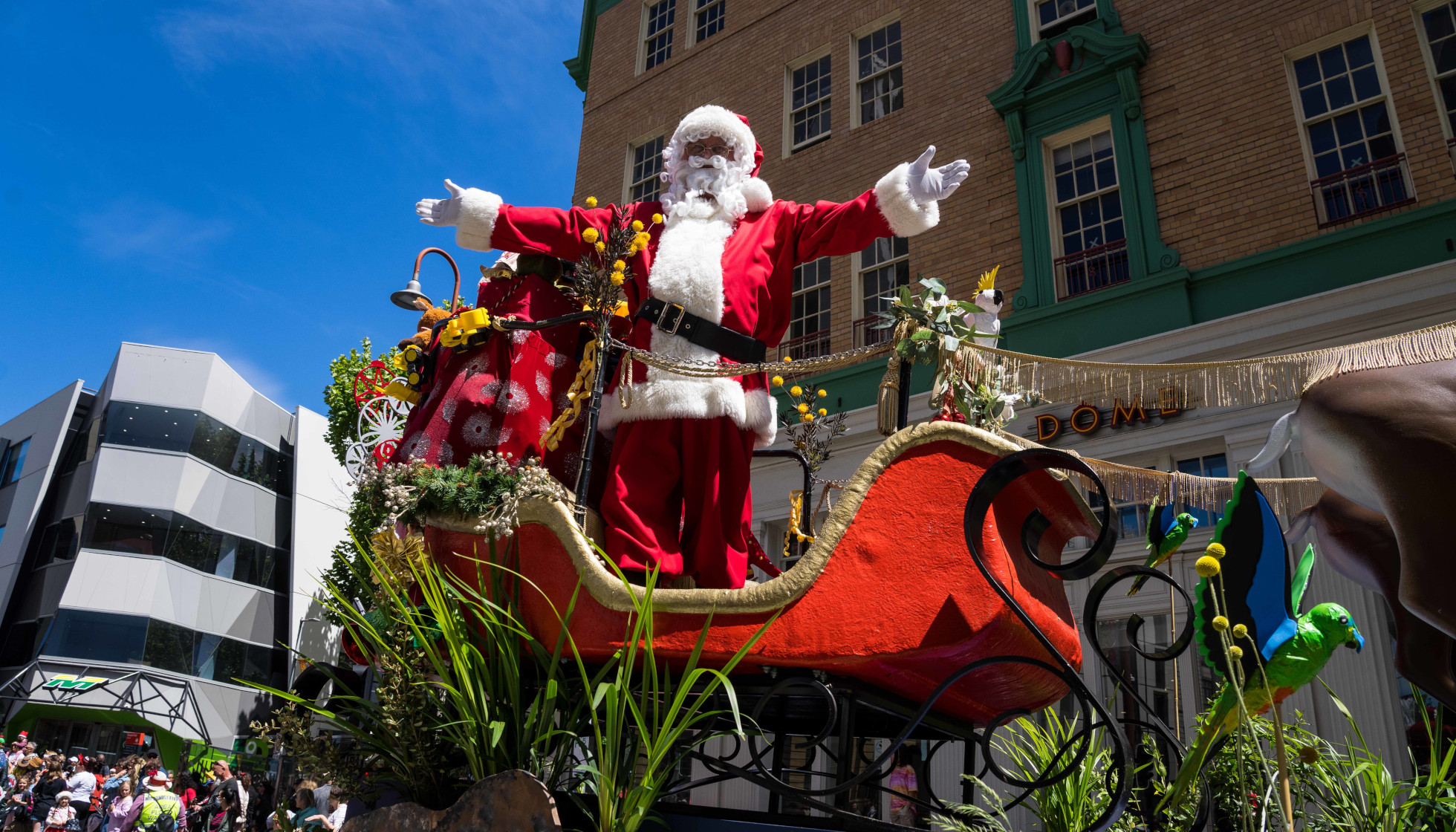
Christmas still matters in Hobart!
I am so happy to see 'Christmas' reappear on our city's street decorations in Hobart.
Magic happens when December’s light spills into Hobart’s streets -when the days are long, the air is warm, and the city hums with a spirit that has threaded its way through generations. Yet in recent years, a curious quietening crept in. Some councils softened, substituted, or sidestepped the word Christmas altogether in their decorations. As if the word itself might be too weighty, too sharp-edged, too much for a modern city.
But in Hobart, a place where heritage is stitched into sandstone and memory fills the lanes like summer jasmine, the word Christmas still matters.
But this isn’t a call to return to some starched, exclusive past. Quite the opposite in fact. Christmas, especially in Australia, has never belonged solely to those who attend church or celebrate it in a strictly religious sense. It has been a season of welcome - of open doors, backyard BBQ’s, neighbourhood laughter and a sense of belonging that crossing both borders and backgrounds.
And here’s the quiet truth often overlooked: Christian traditions, across the world, consistently rank as some of the most immigrant-friendly frameworks of community connection. Churches and Christian-based organisations are among the first to offer settlement support, English classes, emergency relief, cultural bridging and social welcome. In study after study, migrants overwhelmingly describe Christian-majority societies as easier to settle into, less rigid in tradition, and more embracing of diversity than many other cultural contexts.
Christmas itself has become, in many countries, a familiar landmark for newly arrived families - a moment that signals welcome rather than exclusion. You don’t need to share the theology to share the joy. You don’t need to attend a service to enjoy the lights. You don’t need to have grown up with the story to appreciate that the season carries a message of peace, compassion, renewal, and community - values that resonate universally.
That is why having the word Christmas appear proudly in our city’s decorations is not a gesture of dominance but signals a gesture of confidence. Confidence in our identity. Confidence in our shared history. Confidence that a word with centuries of cultural weight can be offered with open hands rather than closed fists.
Removing the word does not make Hobart more inclusive. It makes us oddly timid. It suggests that we are afraid of our own traditions, or worse, that we don’t trust newcomers to understand that a city can celebrate something without demanding allegiance to it.
When you walk through the Hobart CBD and see a decoration that simply says “Seasons Greetings” it could be anywhere. It loses its grounding, its story, its human heart. But when Christmas is written throughout Elizabeth Mall or threaded through the City, it roots us once more. It reminds us of charity drives, carols by candlelight, extended families gathering possibly the only time for the year, and the long-standing rhythm of giving that defines this time of year across Australia.
We honour Diwali, Lunar New Year, Eid, and many more celebrations by naming them. We don’t dilute those festivals out of fear someone won’t understand them. We name them because naming shows respect. Naming shows pride. Naming shows that culture is rich and worth sharing.
So why treat Christmas differently?
In a global city like Hobart - diverse, welcoming, and beautifully layered - we should never be afraid of words that carry deep meaning for many and warm significance for most. Christmas is one of those words.
Let it shine. Let it sparkle. Let it welcome.
When we write Christmas across our city, we are not dividing Hobart. We are inviting everyone -new and old, believer or not -to step into a season that has always been about hope, generosity, and community.
And surely that is a message worth illuminating.
